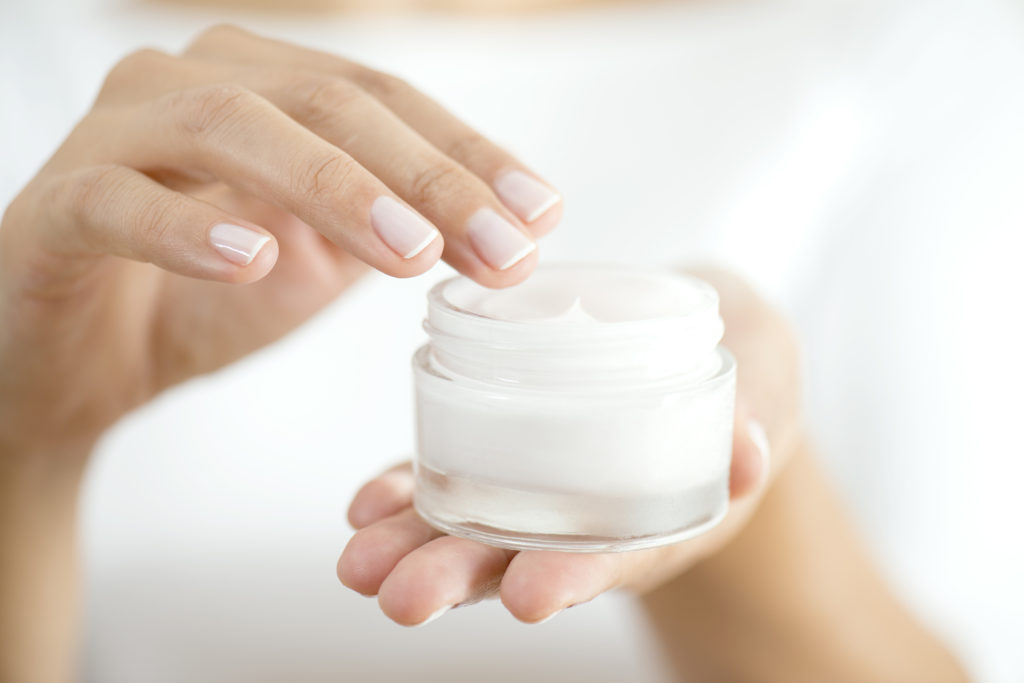Book An Appointment
HCD Blog
For the latest in Skin, Science and Beauty
Moisturizer 101 with Dr. Beleznay
By Dr. Katie Beleznay on March 13th. Tags: Carruthers & Humphrey, Sunscreen, Skincare, Dr Katie Beleznay, Sun protection, Cosmetic Dermatology, Beauty Expert, Complexion, Positive Aging, Skinboosters .

Moisturizers are typically top of mind in the winter. In addition to the harsh weather outside, we tend to spend more time indoors with the heat turned up, which can further dry out the skin. But that doesn’t mean that as we shift into spring, moisturizing should be ignored.
Why Should I Moisturize?
Beyond general relief for dry skin, proper moisturizing offers many benefits. It can:
- Soften the appearance of fine lines
- Provide a layer of protection to the skin
- Repair the skin barrier to prevent conditions like eczema
- Act as a primer for flawless makeup application
- Improve overall complexion, and give the skin a healthy glow
Moisturizers can even help to combat acne. In fact, one of the biggest misconceptions about moisturizers is that people with oily or acne prone skin should steer clear. In fact, moisturizer can actually help to repair a skin barrier that’s damaged from acne and harsh products used to treat it.
What Product Should I Use?
It’s important to find a moisturizer that pairs well with your skin type. For instance, I would typically recommend a non-comedogenic moisturizer that won’t clog pores for someone who is struggling with acne.
Age is a big factor when finding the right moisturizer for your skin. Younger patients tend to have oilier skin, and therefore require a lightweight moisturizer. Over time skin tends to dry out as a result of decreased levels of natural hyaluronic acid and oil production, so a heavier moisturizer may be needed.
A general rule of thumb is to start with products that have the thinnest consistency — like serums — and work your way up to thicker creams. When reading labels, key ingredients to look for include humectants (like glycerin, hyaluronic acid and urea) and occlusives (like petrolatum, lanolin and mineral oil) which work together to smoothen, soften and revitalize the skin. And pay close attention to moisturizers labelled as “natural”. This term isn’t regulated, so these products often include fragrances and other ingredients that can irritate the skin.
How Should I Apply Moisturizer?
Most people moisturize once or twice a day, but those with conditions like eczema or particularly dry skin (called xerosis) may need to moisturize more often. One of the best ways to lock in moisture is to apply your moisturizer while your skin is still damp, after showering or washing your face.
A moisturizer should be applied before a broad spectrum sunscreen, which needs to be added last to provide thorough even protection. Many people use a moisturizer with SPF and think it’s sufficient on its own, but for most consistent sun protection use a specifically designed sunscreen product that is SPF 30 or higher and broad spectrum..
What Else Should I Know?
If topical moisturizers aren’t doing enough for you, there are clinical treatments that can help improve your skin’s hydration. Skin boosters, for instance, are a series of hyaluronic acid microinjections just under the skin’s surface. This procedure provides deeper, longer lasting hydration that can help reduce fine lines and restore your natural glow.
To learn more about how to keep your skin hydrated, and to find the right moisturizer for you, book a consultation at our Westside location.
Blog Categories
- All
- Acne
- anti-aging
- Antiaging
- Beauty
- Beauty Expert
- Belkyra
- Botox
- Carruthers & Humphrey
- Clinical Research
- Complexion
- Cosmetic Dermatology
- Cosmetic Procedures
- Dr Jean Carruthers
- Dr Katie Beleznay
- Dr Shannon Humphrey
- HA Filler
- IPL
- Positive Aging
- Skincare
- Skinmedica
- SPF
- Sun protection
- Thermage
- vancouver
- Wrinkles
